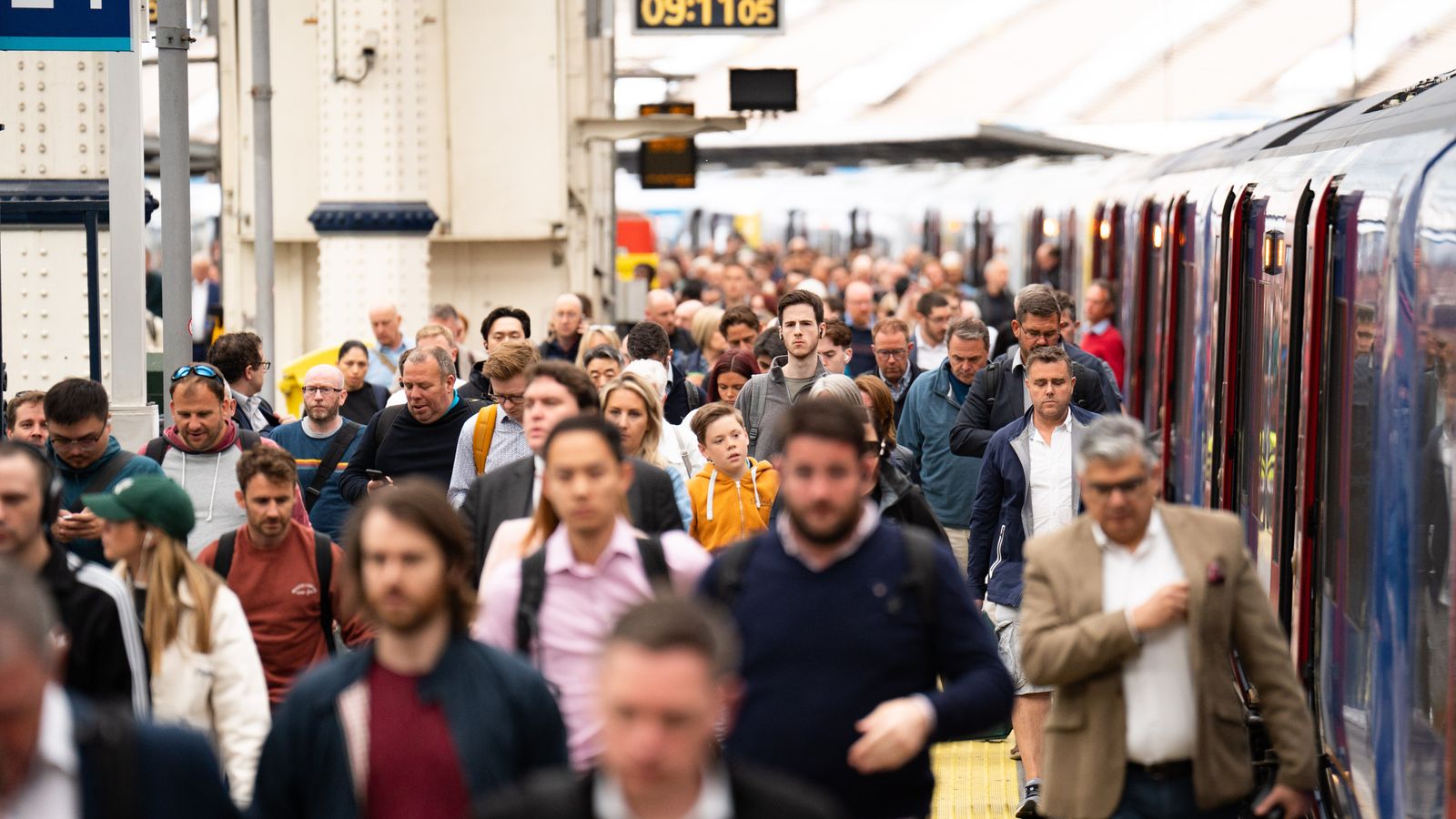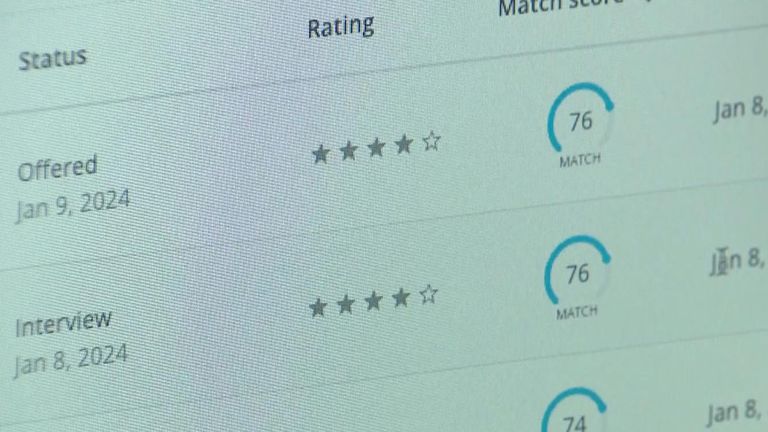Up to eight million UK jobs are at risk from the rise of artificial intelligence (AI), according to a report warning that the low-skilled would be worst affected.
The effects of generative AI are already being widely felt as 11% of tasks done by workers are currently exposed, the Institute for Public Policy Research (IPPR) said.
It said that back office, entry level and part-time jobs were at the highest risk of being disrupted during the so-called first wave, with women and young people the most likely to be affected as a result.
But its analysis showed that as more employers integrate AI technology into their work processes, up to 59% of tasks would be hit without government intervention, leaving the low-skilled most exposed.
The figure equated to 7.9 million roles, the report said, adding that such a shift would provide no benefit to gross domestic product (GDP).
The authors described that as the “worst case scenario”.
But they painted a more positive picture for the economy, and people, if the transition was effectively managed through an industrial strategy that placed an emphasis on protecting key human functions through regulation and that aimed to unlock investment, particularly in training.
They claimed this could lead to an economic boost of 13% to GDP, around £306bn a year, in the best case.
The government is yet to bring forward any legislation specifically aimed at the rise of AI, but last month did announce plans to spend more than £90m on new AI research hubs that will look into ways of using AI responsibly across areas such as healthcare, chemistry and mathematics.
Carsten Jung, senior economist at the IPPR, said: “Already existing generative AI could lead to big labour market disruption or it could hugely boost economic growth, either way it is set to be a game changer for millions of us.
“Many firms are already investing in it, and it has potential to speed up many more tasks as more businesses adopt it.
“Over the next five years it could transform knowledge work.
“The question now is less whether AI can be useful, but rather how fast and in what manner employers will use it.
“History shows that technological transition can be a boon if well managed, or can end in disruption if left to unfold without controls.”
Read more:
IMF issues warning on affect of AI on global workforce
I lost my job due to AI tool
The number of firms using AI and how workers feel about it
Recruitment & Employment Confederation chief executive Kate Shoesmith said of the findings: “Some employers are using AI well, such as in scheduling, sourcing candidates, background checks and personal development plans. But we are only at first base in what AI can do for the labour market.
“We can help maximise the benefits of AI if employers and government work together, particularly on skills development and compliance.
“It’s a fast-moving area – one where we need people proficient and trained in using AI as it is now but also given the skills to adapt to future developments. So, the education system needs to be built around these core employer needs, with flexibility to fund appropriate short-course training, as would come from a more flexible Apprenticeship Levy.”


